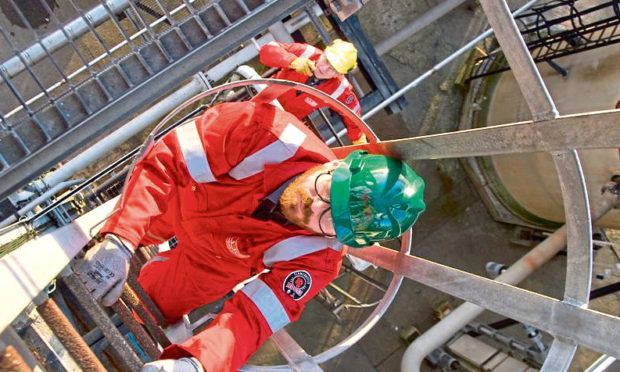The boss of Wood expects more “turbulence” ahead for markets served by the global engineering and consultancy firm.
But chief executive Robin Watson is bullish about prospects for the Aberdeen-based group after a “resilient” first half trading performance.
Speaking after Wood revealed a 14.7% year-on-year drop in revenue during the six months to June 30, with profits nearly wiped out by a coronavirus-driven global economic slowdown, Mr Watson said the company’s increasingly diverse portfolio was helping it through.
He also highlighted nearly £1 billion worth of new work secured during April and May, while Wood has contracts totalling more than £2.3bn due for delivery in the second half of 2020.
But the group’s workforce numbers have not been safe from the coronavirus. Including the impact of Covid-19, lower oil prices, divestments and natural turnover, total headcount is down by about 10,000 people since the start of the year at around 45,000.
Mr Watson said the company had made only “modest” use of furloughing, with just over 200 of its UK staff currently in that situation.
A majority of furloughed workers are being retained and the group does not need to take advantage of the UK Government’s Job Retention Bonus Scheme – offering a one-off payment of £1,000 to firms for every furloughed worker who remains continuously employed through to the end of January 2021 – to protect jobs, he said.
Mr Watson said the firm’s diversification strategy had left it in the best possible shape, under current circumstances, to face a potential fresh wave of the virus and likely “further turbulence”.
Just a few years ago Wood’s business was dominated by upstream oil and gas. Today, midstream and upstream oil and gas account for about 35% of total turnover. The company earns the rest from chemicals and downstream (about 25%), renewables and other energy (25%) and the built environment (15%). Wood’s North Sea headcount stands at around 3,000 people.
Energy giant’s pre-tax profits plummet to £670k from £46.3m
Wood said first half pre-tax profits dwindled to £670,000, from £46.3 million a year ago.
Revenue slid to around £3 billion, from more than £3.5bn previously, as Covid-19 and lower oil prices hurt business.
Chief executive Robin Watson said lower profits in oil and gas-related activities offset a “flat” performance across the rest of the company.
Nearly half of the reduction in headcount since the start of the year was due to the sale of nuclear and industrial service businesses during the first quarter, and the rest was largely due to lower activity in the US and Middle East.
Net debt reduced to £1.3bn, from £1.5bn at the end of last year, largely as a result of the first quarter disposals.
Actions aimed at cutting overheads by more than £148m in 2020, including from job losses, temporary furloughing, reduced working hours, unpaid leave and salary reductions, delivered £52m worth of savings during the first half.
Wood said it was “prudent” not to pay a 2020 interim dividend.
David Barclay, head of office at wealth manager Brewin Dolphin in Aberdeen, said there were “plenty of positives to take” from the firm’s results.
Mr Barclay added: “Debt was a focus of investor interest, given the amount of cash saved by cancelling the dividend earlier this year, and it has been reduced by nearly one-third (year-on-year) – marking significant progress.
“There are also signs the business is continuing to diversify its portfolio of work – winning projects in renewables and the built environment, in particular – as it seeks to lessen its reliance on the oil and gas sector.
“With earnings coming in at the upper end of guidance and good visibility over future revenues, if Wood can continue to make headway on its debt in the second half the company will be in a strong position to weather the impact of Covid-19.”
